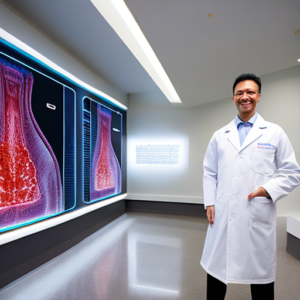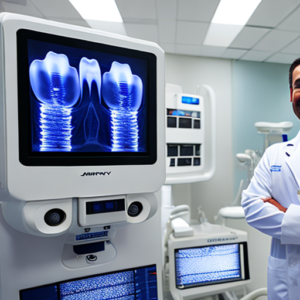Do you frequently experience a sticky or dry feeling in your mouth, despite drinking plenty of water? Perhaps you’ve noticed increased tooth decay, difficulty swallowing, or persistent sore spots that just won’t heal? These symptoms could be indicative of a significant problem – a deficiency in saliva. Saliva isn’t merely lubrication; it’s a vital component of oral health, and when its production is compromised, serious consequences can follow. This article will delve into the fascinating world of saliva deficiency (also known as hyposialia or xerostomia) exploring its underlying causes and offering insights into managing this often-overlooked condition. We’ll examine how the role of saliva in maintaining oral health is significantly impacted by various factors, and what steps can be taken to mitigate the effects.
Saliva: More Than Just Wetting Your Mouth The importance of saliva goes far beyond simply keeping your mouth moist. It’s a complex fluid with numerous critical functions, including neutralizing acids, washing away food particles, facilitating digestion, and containing enzymes that begin breaking down food. Its role in protecting teeth from decay is particularly significant. Without sufficient saliva, the oral environment becomes vastly different—more acidic and susceptible to bacterial growth, dramatically increasing the risk of dental problems. Understanding the causes of saliva deficiency is therefore paramount to preventing and treating these issues.
The Multifaceted Causes of Saliva Deficiency
Several factors can contribute to reduced saliva production. Often, it’s a combination of these that leads to the problem. Let’s examine some of the most common causes:
1. Medications
- Anticholinergics: These drugs – frequently prescribed for conditions like overactive bladder, anxiety, and Parkinson’s disease – are notorious for their drying effect. They block acetylcholine, a neurotransmitter that stimulates saliva production. A 2018 study published in the *Journal of the American Dental Association* found that anticholinergic medication use was strongly associated with an increased risk of dry mouth (xerostomia), even when controlling for other factors like age and diabetes.
- Antihistamines: Many over-the-counter antihistamines, used to treat allergies, also have drying effects.
- Decongestants: These medications often cause vasoconstriction, reducing blood flow to salivary glands.
- Psychotropic Medications: Some antidepressants and antipsychotics can contribute to dry mouth as a side effect.
2. Medical Conditions
- Sjögren’s Syndrome: This autoimmune disorder is the most well-known cause of saliva deficiency. It attacks salivary and lacrimal (tear) glands, significantly reducing their ability to produce fluid. Approximately 40% of Sjögren’s syndrome patients experience severe dry mouth, impacting their quality of life and increasing their dental risk.
- Diabetes: Uncontrolled diabetes can damage salivary glands due to elevated blood sugar levels. A significant percentage of people with diabetes also suffer from xerostomia.
- Rheumatoid Arthritis & Systemic Lupus Erythematosus (SLE): These autoimmune diseases are sometimes linked to reduced saliva production through inflammatory processes affecting the salivary glands.
- HIV/AIDS: Individuals with HIV/AIDS may experience dry mouth due to immune system suppression and medication side effects.
- Neurological Disorders: Conditions like Parkinson’s disease can disrupt nerve signals that stimulate saliva production.
3. Dehydration
Simple dehydration – not drinking enough fluids – is a common cause of saliva deficiency. When the body lacks sufficient water, saliva becomes thinner and less effective at performing its protective functions. A simple experiment: if you restrict your fluid intake for just 24 hours, you’ll likely notice a significant decrease in salivation. Statistics show that approximately 75% of Americans don’t drink enough water daily.
4. Radiation Therapy
- Radiation therapy to the head and neck can severely damage salivary glands, leading to permanent dry mouth. The degree of damage depends on the dose and location of radiation.
5. Aging
Saliva production naturally declines with age. Studies have shown that approximately 30% of individuals over the age of 65 experience symptoms of dry mouth, often due to reduced gland function or medication use. This is a crucial factor to consider in geriatric dentistry.
6. Nerve Damage
Damage to nerves supplying the salivary glands can impair their ability to produce saliva. This can result from trauma, surgery, or certain medical conditions like Bell’s palsy. A case study published in *Oral Surgery, Oral Medicine, Oral Pathology, Dental Biology, and Periodontology* highlighted a patient who developed severe xerostomia following parotid nerve damage during dental implant placement.
The Impact of Saliva Deficiency on Oral Health
Reduced saliva production has far-reaching consequences for oral health. Here’s how saliva deficiency can negatively impact your mouth:
- Increased Risk of Dental Caries (Cavities): Saliva neutralizes acids produced by bacteria in the mouth, protecting tooth enamel. Without sufficient saliva, teeth are more vulnerable to decay.
- Dry Socket: After a tooth extraction, adequate saliva flow is crucial for healing. Reduced saliva can increase the risk of dry socket, a painful complication.
- Oral Candidiasis (Thrush): Saliva helps control the growth of *Candida* fungus in the mouth. Dry mouth creates an ideal environment for thrush to flourish.
- Difficulty Swallowing and Speaking: Reduced saliva makes it harder to swallow food and speak clearly.
- Altered Taste Perception: Saliva plays a role in taste sensation. Dry mouth can diminish the ability to fully experience flavors.
Diagnosis and Treatment of Saliva Deficiency
Diagnosing saliva deficiency typically involves a thorough dental examination, including assessing your oral hygiene habits, reviewing your medication list, and evaluating your medical history. Further tests may include:
- Salivary Flow Rate Measurement: This test measures the amount of saliva you produce over a specific period.
- Sialometry: This assesses the volume and flow patterns of saliva.
- Imaging Studies: MRI or CT scans can visualize salivary gland size and function.
Treatment options depend on the underlying cause and severity of the condition. Here are some common approaches:
- Treating Underlying Conditions: Addressing conditions like Sjögren’s syndrome or diabetes is a primary step.
- Medication Adjustments: Discuss with your doctor if any medications are contributing to dry mouth – potentially switching to alternatives with fewer side effects.
- Saliva Substitutes: Artificial saliva products can provide temporary relief by lubricating the mouth and neutralizing acids. These come in various forms, including sprays, gels, and lozenges.
- Oral Hygiene Measures: Maintaining excellent oral hygiene is crucial – regular brushing with a fluoride toothpaste, flossing, and rinsing with an antibacterial mouthwash help minimize the risk of complications.
- Dietary Modifications: Avoid sugary foods and drinks that exacerbate tooth decay.
- Salivary Stimulants: Medications like pilocarpine or cevimeline stimulate saliva production but have potential side effects; they’re typically reserved for severe cases.
Conclusion
Saliva deficiency (hyposialia) is a complex issue with numerous contributing factors, ranging from medications to underlying medical conditions. Understanding the multifaceted causes and significant impact on oral health is crucial for proactive prevention and management. Maintaining good oral hygiene practices combined with appropriate treatment can significantly mitigate the risks associated with reduced saliva production, ultimately safeguarding your dental well-being. Don’t ignore persistent dry mouth symptoms – seek professional advice from a dentist or healthcare provider to identify the root cause and receive targeted care.
Key Takeaways
- Saliva is essential for oral health: it protects teeth, aids digestion, and maintains a healthy balance in the mouth.
- Many factors can contribute to saliva deficiency, including medications, medical conditions, dehydration, and aging.
- Prompt diagnosis and treatment are crucial to prevent serious dental problems.
- Maintaining good oral hygiene practices is paramount when managing dry mouth.
FAQs
- What exactly is xerostomia? Xerostomia is the medical term for dry mouth, which is characterized by a subjective feeling of dryness in the mouth due to insufficient saliva production.
- How can I increase my saliva flow? Strategies include drinking plenty of water, chewing sugar-free gum or sucking on sugar-free candies (which stimulate salivary glands), and using artificial saliva products.
- Are there any specific foods I should avoid if I have dry mouth? Sticky, chewy, and sugary foods can worsen the problem. Opt for softer foods that are easier to swallow.
- Can dehydration cause dry mouth? Yes, dehydration is a major contributor to dry mouth because saliva becomes thinner when the body lacks sufficient fluids.
- What medications commonly cause dry mouth? Anticholinergics, antihistamines, decongestants, and some antidepressants are frequently associated with xerostomia.
















